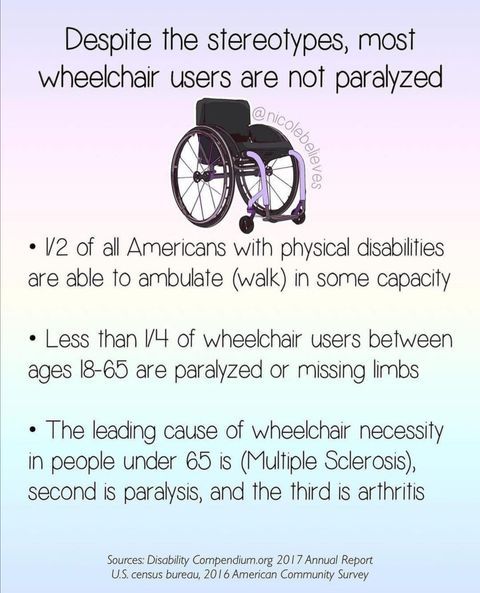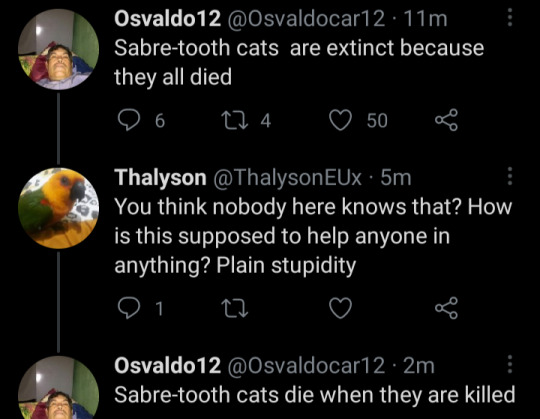Text
SloMo WriNo: Instantly Improve Your Writing With One Simple Trick

Want to make your writing instantly better?
Don’t we all?
Promising instant improvement is an easy way to hook eyes, (I’m sort of sorry for click-baiting you— but not too much.) so a lot of writing advice is framed that way.
But is it actually possible?
Generally the advice on those types of posts isn’t anything revolutionary. You’re told to eliminate adverbs/filter words/telling. Or perhaps the advice is additive. You should start using all 5 (or even 6?) senses in every description, do or don’t use certain tenses or povs, change up sentence lengths, use more paragraph breaks, and so it goes.
It’s (usually) all useful advice, especially when applied in moderation. (No one will come and shoot you for occasionally using suddenly or summarizing a scene instead of showing every detail.)
The issues is that a lot of writers (especially beginner writers) are seeking some sort of magic bullet. That one trick that will change everything and magically make you good. (never mind that ‘good’ is far more nebulous and subjective than anyone wants to admit.)
Sadly, once you get beyond learning things like punctuation and when to insert paragraph breaks, there’s not really any single technique that you can quickly apply and immediately lift the quality of your writing.
For the rest, it really takes time. Even if the advice is good, you need to learn when and how to apply it.
As such, there’s only one technique that will definitely make your writing better.
Practice.
Yeah. So boring. The least sexy piece of writing advice. Write more.
But it’s also the simplest. (Not always the easiest, but definitely the simplest!) Writing is not mystic or singular. It’s just like any other art or craft. The only way you get good is by spending time at it. And just like anything else, you’re going to be bad before you can start to get good.
You would never expect to become an accomplished guitarist by spending lots of time listening to and thinking about music, while almost never picking up your instrument to practice. And you will not become a good writer without practicing the action of writing.
It’s a comforting idea that gets bandied around at times, that writing isn’t just fingers on the keys or pen on paper. That it’s thinking and daydreaming and making mood boards etc. While those writing adjacent things are fun and undoubtedly can help you write, they are not writing. They are not practice.
Spending your time doing those things instead of writing do not make you a better writer, and obviously they don’t finish your novel or writing project.
Which is my goal here. To help you finish your project. As such I spend very little time on dispensing advice on plot or prose, and focus mostly on the process of writing.
That’s not to say that I don’t think you should spend time on learning how to write better prose, or how to create compelling characters and plot, those things are important! But if attempting to learn that stuff gets in the way of practice, then it’s counterproductive.
So don’t let the writing advice become the focus of your writing. Apply advice slowly, and don’t overwhelm yourself with trying to fix all your perceived faults at once. (I still have a difficult relationship with punctuation, but I’m learning. Slowly.) If you can, focus on techniques that interest you. Keep things low pressure— fun even?
Yes you want your work to be as good as possible, but also, you’re doing this writing thing because you enjoy it, right? So don’t allow the pressure to be good to stop you from having fun. If trying to apply a certain piece of writing advice is making you miserable, toss it aside. It’s either bad advice, or it’s not the right time for you to worry about it. Above all, avoid anything that kills your joy and makes writing a miserable chore.
So I guess this is my one piece of advice that will improve your writing (process) instantly.
Enjoy yourself, and ditch anything that ruins that joy. You’ll get better at your own pace, as long as you keep writing.
—Maree
Subscribe to my substack to make sure you don't miss a post, chat with me on the WIP Project discord, and tag any posts you make about the challenge with #slomowrino if you want me to see them!
21 notes
·
View notes
Text
I forgot how lonely it is to write original fiction.
Where are the kudos? The subscriptions? The comments? The people cheerleading me chapter to chapter? Where are the kind words and compliments and reassurances that what I'm writing isn't complete crap? Where are the unhinged emojis? The asks on Tumblr? Where are my mutuals in my dms apologizing for not reading the latest chapter right away (side note, you know you don't have to apologize at all, right??). Where is the fanart? Where are the recs?
Where is my motivation to keep going?
It's something I've been thinking about a lot, actually, lately. How the experience of writing fanfic is so unique. How you already have an audience, willing and waiting and captive. And that's really it, isn't it? You have an audience. It's almost performative, writing fanfic. It's being on a stage, a one-person show (or two, if you do it with a friend); it's getting live reactions to your performance, it's feeding off the energy of the crowd and informing it back in a feedback loop; it's improvised, sometimes, in almost-real-time. It's building something that you couldn't have built by yourself. A thing that takes on a life of its own.
It's an experience you can't get writing original fiction, and, honestly, not having it is making it hard to write something original at all.
8K notes
·
View notes
Text
Things That May Be Causing Your Writer's Block- and How to Beat Them
I don't like the term 'Writer's Block' - not because it isn't real, but because the term is so vague that it's useless. Hundreds of issues all get lumped together under this one umbrella, making writer's block seem like this all-powerful boogeyman that's impossible to beat. Worse yet, it leaves people giving and receiving advice that is completely ineffective because people often don't realize they're talking about entirely different issues.
In my experience, the key to beating writer's block is figuring out what the block even is, so I put together a list of Actual Reasons why you may be struggling to write:
(note that any case of writer's block is usually a mix of two or more)
Perfectionism (most common)
What it looks like:
You write one sentence and spend the next hour googling "synonyms for ___"
Write. Erase. Write. Rewrite. Erase.
Should I even start writing this scene when I haven't figured out this one specific detail yet?
I hate everything I write
Cringing while writing
My first draft must be perfect, or else I'm a terrible writer
Things that can help:
Give yourself permission to suck
Keep in mind that nothing you write is going to be perfect, especially your first draft
Think of writing your first/early drafts not as writing, but sketching out a loose foundation to build upon later
People write multiple drafts for a reason: write now, edit later
Stop googling synonyms and save that for editing
Write with a pen to reduce temptation to erase
Embrace leaving blank spaces in your writing when you can't think of the right word, name, or detail
It's okay if your writing sucks. We all suck at some point. Embrace the growth mindset, and focus on getting words on a page
Lack of inspiration (easiest to fix)
What it looks like:
Head empty, no ideas
What do I even write about???
I don't have a plot, I just have an image
Want to write but no story to write
Things that can help:
Google writing prompts
If writing prompts aren't your thing, instead try thinking about what kind of tropes/genres/story elements you would like to try out
Instead of thinking about the story you would like to write, think about the story you would like to read, and write that
It's okay if you don't have a fully fleshed out story idea. Even if it's just an image or a line of dialogue, it's okay to write that. A story may or may not come out of it, but at least you got the creative juices flowing
Stop writing. Step away from your desk and let yourself naturally get inspired. Go for a walk, read a book, travel, play video games, research history, etc. Don't force ideas, but do open up your mind to them
If you're like me, world-building may come more naturally than plotting. Design the world first and let the story come later
Boredom/Understimulation (lost the flow)
What it looks like:
I know I should be writing but uugggghhhh I just can'tttttt
Writing words feels like pulling teeth
I started writing, but then I got bored/distracted
I enjoy the idea of writing, but the actual process makes me want to throw my laptop out the window
Things that can help:
Introduce stimulation: snacks, beverages, gum, music such as lo-fi, blankets, decorate your writing space, get a clickity-clackity keyboard, etc.
Add variety: write in a new location, try a new idea/different story for a day or so, switch up how you write (pen and paper vs. computer) or try voice recording or text-to-speech
Gamify writing: create an arbitrary challenge, such as trying to see how many words you can write in a set time and try to beat your high score
Find a writing buddy or join a writer's group
Give yourself a reward for every writing milestone, even if it's just writing a paragraph
Ask yourself whether this project you're working on is something you really want to be doing, and be honest with your answer
Intimidation/Procrastination (often related to perfectionism, but not always)
What it looks like:
I was feeling really motivated to write, but then I opened my laptop
I don't even know where to start
I love writing, but I can never seem to get started
I'll write tomorrow. I mean next week. Next month? Next month, I swear (doesn't write next month)
Can't find the time or energy
Unreasonable expectations (I should be able to write 10,000 words a day, right????)
Feeling discouraged and wondering why I'm even trying
Things that can help:
Follow the 2 min rule (or the 1 paragraph rule, which works better for me): whenever you sit down to write, tell yourself that you are only going to write for 2 minutes. If you feel like continuing once the 2 mins are up, go for it! Otherwise, stop. Force yourself to start but DO NOT force yourself to continue unless you feel like it. The more often you do this, the easier it will be to get started
Make getting started as easy as possible (i.e. minimize barriers: if getting up to get a notebook is stopping you from getting started, then write in the notes app of your phone)
Commit to a routine that will work for you. Baby steps are important here. Go with something that feels reasonable: every day, every other day, once a week, twice a week, and use cues to help you remember to start. If you chose a set time to write, just make sure that it's a time that feels natural to you- i.e. don't force yourself to writing at 9am every morning if you're not a morning person
Find a friend or a writing buddy you can trust and talk it out or share a piece of work you're proud of. Sometimes we just get a bit bogged down by criticism- either internal or external- and need a few words of encouragement
The Problem's Not You, It's Your Story (or Outline (or Process))
What it looks like:
I have no problems writing other scenes, it's just this scene
I started writing, but now I have no idea where I'm going
I don't think I'm doing this right
What's an outline?
Drowning in documents
This. Doesn't. Make. Sense. How do I get from this plot point to this one?!?!?! (this ColeyDoesThings quote lives in my head rent free cause BOY have I been there)
Things That Can Help:
Go back to the drawing board. Really try to get at the root of why a scene or story isn't working
A part of growing as a writer is learning when to kill your darlings. Sometimes you're trying to force an idea or scene that just doesn't work and you need to let it go
If you don't have an outline, write one
If you have an outline and it isn't working, rewrite it, or look up different ways to structure it
You may be trying to write as a pantser when you're really a plotter or vice versa. Experiment with different writing processes and see what feels most natural
Study story structures, starting with the three act structure. Even if you don't use them, you should know them
Check out Ellen Brock on YouTube. She's a professional novel editor who has a lot of advice on writing strategies for different types of writers
Also check out Savage Books on YouTube (another professional story editor) for advice on story structure and dialogue. Seriously, I cannot recommend this guy enough
Executive Dysfunction, Usually From ADHD/Autism
What it looks like:
Everything in boredom/understimulation
Everything in intimidation/procrastination
You have been diagnosed with and/or have symptoms of ADHD/Autism
Things that can help:
If you haven't already, seek a diagnosis or professional treatment
Hire an ADHD coach or other specialist that can help you work with your brain (I use Shimmer; feel free to DM me for a referral)
Seek out neurodiverse and neurodiverse writing communities for advice and support
Try body doubling! There's lot's of free online body doubling websites out there for you to try. If social anxiety is a barrier, start out with writing streams such as katecavanaughwrites on Twitch
Be aware of any sensory barriers that may be getting in the way of you writing (such as an uncomfortable desk chair, harsh lighting, bad sounds)
And Lastly, Burnout, Depression, or Other Mental Illness
What it looks like:
You have symptoms of burnout or depression
Struggling with all things, not just writing
It's more than a lack of motivation- the spark is just dead
Things that can help:
Forget writing for now. Focus on healing first.
Seek professional help
If you feel like it, use writing as a way to explore your feelings. It can take the form of journaling, poetry, an abstract reflection of your thoughts, narrative essays, or exploring what you're feeling through your fictional characters. The last two helped me rediscover my love of writing after I thought years of depression had killed it for good. Just don't force yourself to do so, and stop if it takes you to a darker place instead of feeling cathartic
17K notes
·
View notes
Text
Tips to increase tension:
1. Establish Clear Goals: Establish clear, compelling goals that are relatable to readers. The more readers care about whether the character succeeds or fails, the higher the tension.
2. Time Pressure: Introduce time constraints or deadlines. This creates a sense of urgency and raises the stakes.
3. Obstacles: Place obstacles and conflicts in the path of your characters, both internal and external. These challenges should grow progressively more difficult, making the reader wonder if and how the characters will overcome them.
4. Unpredictability: Surprise your readers with unexpected twists or developments. Subvert their expectations, but ensure that these surprises are rooted in the story's internal logic.
5. Character Flaws and Growth: Give your characters flaws and weaknesses that they must confront and overcome. As they evolve, readers become more interested in their journeys and outcomes.
6. Foreshadowing: Skillful foreshadowing can build anticipation. Drop subtle hints or clues about future events or conflicts to keep readers guessing.
7. Moral Dilemmas: Present characters with challenging moral choices. Preferably, all choices have high prices, making the reader unsure of which choice to root for.
8. Show, Don't Tell: Instead of telling readers about the tension, show it through the characters' actions, thoughts, and emotions. Let readers experience the tension alongside the characters.
9. Dialogue and Conflict Resolution: Use dialogue to create conflicts between characters. Tense conversations can reveal hidden motivations and escalate the overall tension.
10. Setting and Atmosphere: Craft the setting and atmosphere to complement the mood you want to convey. Dark, foreboding settings enhance danger and tension, while serene settings provide a contrast.
11. Cliffhangers: End chapters or sections on cliffhangers, leaving readers eager to know what happens next. However, use this sparingly to maintain its impact.
12. Relatable Characters: Ensure that readers can relate to and care about your characters. This emotional connection amplifies the tension as readers become invested in their fates.
546 notes
·
View notes
Text
every time i start to feel cringe for being too deep in the hyperfixation i remember the intense depression i have waded through and have to remind myself that enjoyment is fleeting (so grab it with both hands), and life is for loving (so hold that love close), and if anyone thinks i’m cringe they must not be having a very good time (and i hope they can find a good time soon).
104K notes
·
View notes
Text
in which i recommend books like the netflix algorithm
you wanted it, you got it, babes! caveat: this list is long (seriously, sorry about the length) and i can’t write blurbs for everything, but i highly recommend going and looking at anything that sounds interesting. some books will fall under multiple headings, so i’m listing them twice. i am linking to their purchase pages on bookshop.org, because amazon sucks and bookshop helps support indie booksellers, but if your local indie bookstore offers delivery or curbside pickup, buy it there. and i’m trying to keep this list confined to pretty recent titles, so even though a few older ones might slip in there, it’s definitely centered on releases from the past few years. okay let’s do this.
if you want a book that feels like a primal scream:
godshot by chelsea bieker
the book of joan by lidia yuknavitch
girl, woman, other by bernadine evaristo
her body and other parties by carmen maria machado (short stories)
trust exercise by susan choi
my dark vanessa by kate elizabeth russell
the rehearsal by eleanor catton
indelicacy by amina cain
the answers by catherine lacey
the mars room by rachel kushner
the love affairs of nathaniel p. by adelle waldman
if you want clever social commentary and/or hilarious female protagonists:
you too can have a body like mine by alexandra kleeman
the new me by halle butler
queenie by candice carty-williams
prep by curtis sittenfeld
the idiot by elif batumen
my year of rest and relaxation by ottessa moshfegh
oksana, behave! by maria kuznetsova
where’d you go, bernadette by maria semple
convenience store woman by sayaka murata
nothing to see here by kevin wilson
made for love by alissa nutting
the pisces by melissa broder
the herd by andrea bartz
if you want to start reading the unhinged women canon (not all recent):
mrs. dalloway by virginia woolf
the awakening by kate chopin
we have always lived in the castle by shirley jackson
gone girl by gillian flynn
rebecca by daphne du maurier
white oleander by janet fitch
cousin bette by honore de balzac
wide sargasso sea by jean rhys
play it as it lays by joan didion
the piano teacher by elfriede jelinek
valley of the dolls by jacqueline susann
postcards from the edge by carrie fisher
if you liked the secret history:
if we were villains by m.l. rio
social creature by tara isabelle burton
the basic eight by daniel handler
the incendiaries by r.o. kwon
bunny by mona awad
hex by rebecca dinerstein knight
if you like speculative/dystopian fiction:
the dreamers by karen thompson walker
the book of joan by lidia yuknavitch
severance by lin ma
gold fame citrus by claire vaye watkins
the farm by joanne ramos
followers by megan angelo
the power by naomi alderman
the glass hotel by emily st. john mandel
if you want a book that reads like a good fanfic:
normal people by sally rooney
fame adjacent by sarah skilton
stay up with hugo best by erin somers
the seven husbands of evelyn hugo by taylor jenkins reid
circe by madeline miller
the nobodies by liza palmer
evvie drake starts over by linda holmes
if you like dark stories about complex relationships between women:
my sister, the serial killer by oyinkan braithwaite
baby teeth by zoje stage
dare me by megan abbott
eileen by ottessa moshfegh
social creature by tara isabelle burton
the worst kind of want by liska jacobs
the girls by emma cline
oligarchy by scarlett thomas
devotion by madeline stevens
baby by annaleese jochems
marlena by julie buntin
bunny by mona awad
necessary people by anna pitoniak
if you like stories about complicated families:
red at the bone by jacqueline woodson
the care and feeding of ravenously hungry girls by anissa grey
mostly dead things by kristen arnett
bee season by myla goldberg
bowlaway by elizabeth mccracken
everything i never told you by celeste ng
the nest by cynthia d’aprix sweeney
the grammarians by cathleen schine
ask again, yes by mary beth keane
if you like smart and thoughtful books about relationships between women:
my brilliant friend and the neapolitan novels by elena ferrante
such a fun age by kiley reid
gingerbread by helen oyeyimi
the female persuasion by meg wolitzer
the burning girl by claire messud
expectation by anna hope
the animators by kayla rae whitaker
if you want something queer that isn’t YA:
my education by susan choi
permission by saskia vogel
mostly dead things by kristen arnett
real life by brandon taylor
after dolores by sarah schulman
patsy by nicole dennis-benn
wilder girls by rory power
enter the aardvark by jessica anthony
less by andrew sean greer
exciting times by naiose dolan
you just want something good and are willing to take a chance on one of these books i love (these are not all recent, i just like them a lot):
dept. of speculation by jenny offill
the interestings by meg wolitzer
godshot by chelsea bieker
play it as it lays by joan didion
the bonfire of the vanities by tom wolfe
wolf in white van by john darnielle
things you would know if you grew up around here by nancy wayson dinan
sex and rage by eve babitz
wise blood by flannery o’connor
leading men by christopher castellani
saint x by alexis schaitkin
the cosmopolitans by sarah schulman
lake success by gary shteyngart
odds against tomorrow by nathaniel rich
the great believers by rebecca makkai
good citizens need not fear by maria reva (short stories)
30K notes
·
View notes
Text
Common character motivations
Revenge - seeking to get even with someone who has wronged them
Love - driven by romantic feelings for another character
Greed - motivated by a desire for material possessions or wealth
Power - seeking to gain control or influence over others
Justice - motivated by a sense of fairness and a desire to see justice served
Redemption - seeking to make up for past mistakes or wrongdoings
Curiosity - driven by a desire to learn or discover something new
Duty - motivated by a sense of responsibility or obligation to others or a cause
Ambition - driven by a desire to achieve a specific goal or succeed in a particular endeavor
Fear - motivated by a desire to avoid danger or harm
Guilt - driven by a sense of remorse for past actions or decisions
Jealousy - motivated by envy or a desire to possess what another character has
Betrayal - motivated by a sense of betrayal or desire for revenge against someone who has betrayed them.
Ambivalence - a character who is conflicted or uncertain about their goals or desires
Freedom - a character who seeks to escape from a restrictive situation or society
Fame - motivated by a desire for public recognition or notoriety
Identity - driven by a need to understand or define who they are
Family - motivated by a sense of loyalty or obligation to their family or loved ones
Discovery - driven by a desire to explore or uncover hidden knowledge
Patriotism - motivated by a love for their country or a desire to protect it
Rebellion - driven by a desire to challenge authority or the status quo
Artistic expression - motivated by a need to create or express oneself through art, music, or other creative endeavors
Religion or spirituality - driven by a desire to connect with a higher power or to live according to certain beliefs or values
Altruism - motivated by a desire to help others or make the world a better place
Atonement - driven by a need to make amends or seek forgiveness for past actions
Nostalgia - motivated by a desire to return to a simpler time or relive past experiences
Status - driven by a desire for social or professional standing or recognition.
Insecurity - driven by a need to prove their worth or gain acceptance from others
Legacy - motivated by a desire to leave a lasting impact or to be remembered in a certain way after they're gone
Survival - driven by the need to survive in extreme circumstances, such as a natural disaster, war, or an apocalyptic event
Belonging - motivated by a desire to fit in with a certain group or community
Love of knowledge - driven by a passion for learning and acquiring new information
Addiction - motivated by a compulsion to engage in a particular behavior or activity, such as drug use or gambling
Inciting incident - motivation driven by a specific event that triggers or sets the character on their journey
Fear of death - driven by a fear of their own mortality or the mortality of others
Intimidation - motivated by a fear of others or a desire to intimidate others for personal gain
Envy - driven by a desire to possess what others have or to be like someone else
Manipulation - motivated by a desire to control or manipulate others for their own benefit
Protecting others - driven by a desire to protect loved ones or innocent people from harm
Sense of duty - motivated by a sense of responsibility to fulfill a particular role or obligation.
If you want to read more posts about writing, please click here and give me a follow!
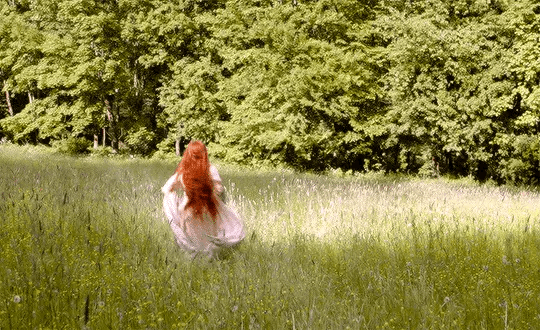
2K notes
·
View notes
Text
The single most important piece of writing advice I would give to a lot of amateur writers is to write less beautifully - or at least to write beautifully less.
I rarely find a piece of writing I can't read because it's too simple, or too concise and to-the-point - not memorable, perhaps, but also not a headache on a page. On the other hand, I see loads of pieces which are effectively unreadable because they're far too rich to swallow, and badly in need of watering down a bit.
The absolute worst culprit is the dialogue tags. I'm a big fan of letting people write in their own style, but I would love it if a lot of writers could please cool it with letting me know every time a character blinks or licks their lips. I don't need to know that, especially if it happens every time they speak.
So many dialogue excerpts look like this:
"So this is how we talk?" he queried quietly, his eyebrows furrowed into knots.
"Apparently," she replied with a puzzled grin, bouncing on the balls of her feet with restless energy.
"Isn't that... exhausting?" he questioned, a lop-sided smile snaking its way across his lips.
"The bouncing?" she asked shyly, her eyelids fluttering in shame.
"No, of course not," he told her, his lean arms reached out to pull her closer. He buried his face into the mess of her hair, taking a deep breath of her perfume. "I just feel a little nauseated by all of these actions."
"I don't know what you mean," she giggled, brushing the hair back out of her eyes as her cheeks flushed red.
"Don't worry," he sighed, rolling his eyes up towards the ceiling.
I'm assuming this is a convention that comes from somewhere, given its ubiquity - perhaps somewhere in the world of fanfiction, where there will be short, intimate pieces entirely focused on the ways in which characters interact with each other. But to me, in an original work, it's so exhausting that I can't make it down the rest of the page.
Dialogue tags may be the worst, or most obvious offenders, but the same principle extends pretty much everywhere else. Each line doesn't have to be some great quote you can hang on your wall, and it's hard to read a whole story written like that.
There's been some recent backlash on here against modern films where every line of dialogue is a quip, at the expense of building an authentic conversation, but that's how a lot of people start out writing - thinking that each sentence should be made as flowery as possible, when too many flowers in the same pot will crowd each other out.
You need to leave some gaps to let the sunlight in, and illuminate the beauty of the occasional flourish you do include. Think of it like vanilla extract, to make a reference that was topical when I started writing this post: you need to add a little for flavour, without which the writing will be too dull, but tip the bottle and I will actually be sick. Write beautifully less. Learn to embrace the prosaic.
1K notes
·
View notes
Text
“young adult dystopian novels are so unrealistic lmao like they always have some random teenage girl rising up to inspire the world to make change.”
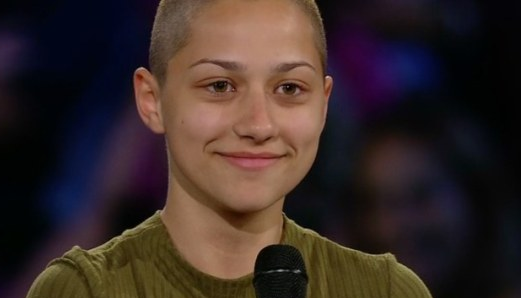
a hero emerges
498K notes
·
View notes
Text
I feel cheated. no one on Reddit told me that tumblr is a serotonin factory. Keep liking and reblogging my posts please thanks
171K notes
·
View notes
Photo
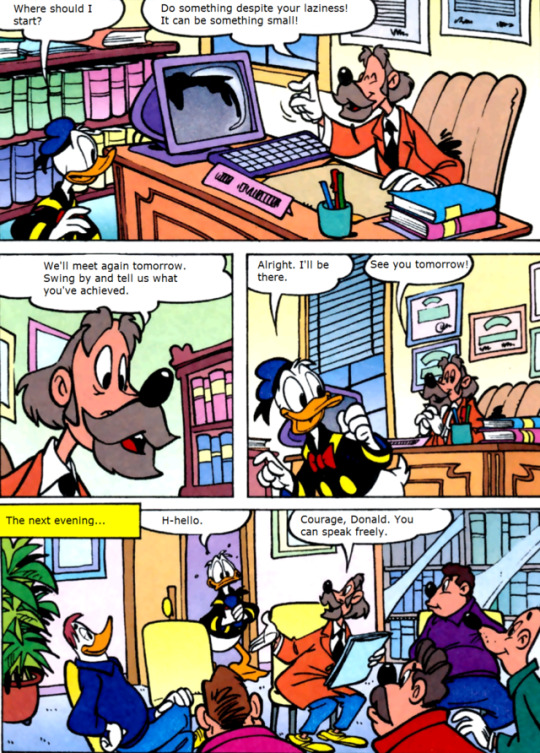

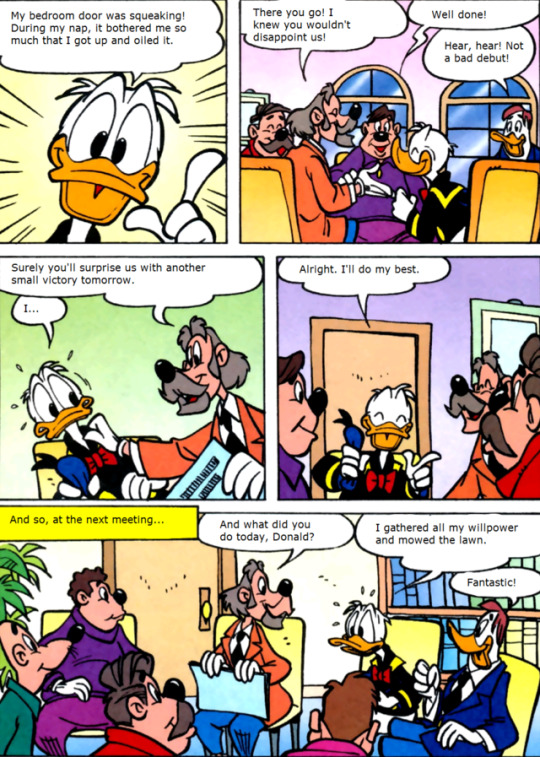

Donald Duck Goes To Group Therapy For His Debilitating Executive Dysfunction And It’s Just Played Completely Straight For Like Four Pages Like What
245K notes
·
View notes
Text
Just a reminder my blog is trans inclusive. It’s bi inclusive. It is pan inclusive. It is intersex inclusive. It is ace/asexual inclusive. It is aro/aromantic inclusive. It is queer inclusive.
I don’t support terfs or exclusionists.
If you came here looking for an ally in your bigotry you came to the wrong blog. Go away. You are not welcome here.
77K notes
·
View notes
Text
List of Vocal Sounds for Smut
I present to you a - probably quite incomplete, I’m sure I’m missing a lot of speech sounds - reference list and a bit of a guideline for the different ways one can describe the sounds your characters make whilst writing smut. I’ll definitely be referring to it, because I sometimes get stuck on exactly how to describe a particular noise. (aka, “he can’t groan again, he just groaned last paragraph”)
Sounds (noun, both independently and describing speech): breath/breathe, gasp, moan, groan, pant, whimper, whine, shout, yelp, hiss, grunt, cry, scream, shriek, sob, growl, curse, sound, sigh, hum, noise, squeak, snarl, howl, roar, mewl, wail, choke, keen, purr
Sounds (noun, describing speech): rasp, husk, drawl, plea, murmur, whisper, beg
Descriptors (adjective): loud, hushed, quiet, low, high, high-pitched, little, tiny, soft, deep, unrestrained, restrained, strained, breathy, rough, sudden, short, drawn-out, sharp, harsh, hard, thick, smooth, thin, heavy, impassioned, insistent, hungry, passionate, repeated, filthy, debauched, sweet, slow, deliberate, guttural, languid, surprised, husky, distracted, happy, pleased, satisfied, wordless, cut-off, bitten-off, contented, hoarse, extended, long, depraved, aching, choked, strangled, broken, helpless, shuddering, shaky, trembling, urgent, needy, desperate, wanton, shattered, pained, eager
Combine a descriptor and a sound for best effect - for example, “needy moan,” “pleased hum,” or “sudden scream.” You can even use two: “low, rough grunt,” “sweet little cry,” “desperate, filthy noise,” as long as you don’t repeat a word that means the same thing, unless you really want to emphasize it. Avoiding repetition is pretty key here. You don’t usually want to say “hushed, quiet gasp” except on rare occasions when it’s very important how soft the sound was.
Use your own common sense, as well; some sounds and descriptors don’t generally work well together. “Deliberate shriek” probably wouldn’t work well, and neither would “languid grunt,” but again, this is all very situational - play around! Have fun.
Feel free to add to my lists, use for your reference or pass them around. It would be fun to see a randomized generator made, too, I’m just too lazy to do it myself. ;)
31K notes
·
View notes
Text
Story Structure Explained: Pinch Points, Midpoints, Plot Points, and Middles (Warrior Phase)
Some writers find the middle of a story very difficult to write. They know the beginning. They know the end. But they don’t know what comes in between. After this article, you should have the information you need to finish filling in that middle! And filling it in, in interesting ways.
This post focuses on the second part of the middle, aka, the “active” or “warrior” phase of the story, and will take you from the midpoint up to the climax.
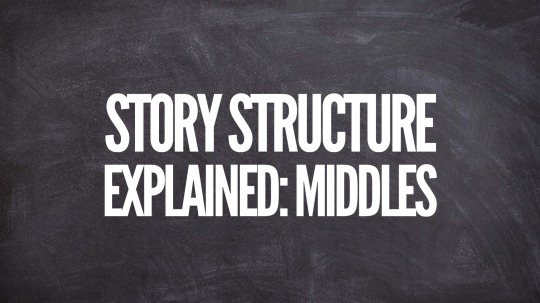
For the beginning part of story structure–the prologue, hooks, setup, and “orphan” phase–visit this page.
For the first part of the middle, between the inciting incident and the midpoint, or the “reactive” or “wanderer” phase, visit this page.
Midpoint
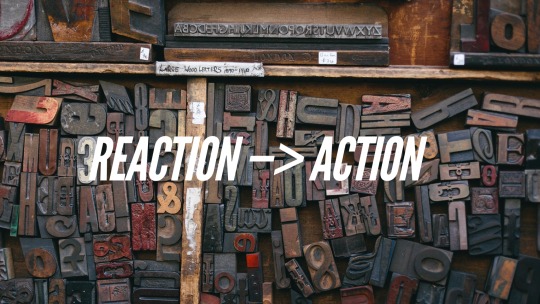
At the midpoint, new information enters the story that changes the context. It moves the protagonist from reaction to action. He stops being a wanderer and turns into a warrior, trying to fight back and attack, usually with a clearer goal or a more refined strategy. In other words, he is now more empowered than before.
Midpoints can be mind-blowing. Or they can be subtle. In the film Interstellar, the midpoint also serves as a twist. The context shifts and the audience and protagonists realize that there never ever really was a plan to save the humans on Earth. It was all a ruse to provide people hope. Once Cooper learns this, he changes into warrior mode, determined to do whatever it takes to return to Earth and/or save the people there.
Other midpoints aren’t as drastic. It might be the protagonist sitting down to eat and suddenly having a profound realization that changes the perspective of everything she’s been reacting to.
In Spider-verse

The midpoint in Spider-verse happens at the very end of the scene where Miles and Peter B. Parker steal the computer from Alchemax, and it goes into the very beginning of the next scene, the bus ride with Gwen Stacy.
Prior to this, even if Miles and Peter have a plan, they’ve largely been responding. And the only reason they need to go to Alchemax in the first place is because Miles himself broke the override key.
However, by the end of this scene, a few things have changed that steer us into the next phase:
1. Miles learns how to unstick intentionally
2. And how to use his web, intentionally
3. By this point, he’s learned how to listen to his spider senses.
4. Peter and Miles begin working together as a team
In other words, things they were reacting to are starting to get under control. Sure, Miles still doesn’t have control over all his powers, and maybe that’s a variation, but it works because he has control over the iconic, main Spider-man powers.
On the bus ride afterward, Gwen Stacy reveals she knows where they can go to make another override key, promising they’ll make sure the new one doesn’t break, and thus giving Peter and Miles a clear plan and a clearer path to defeating the antagonist.
Warrior State (and Character Arc)

From the midpoint to the climax, the protagonist is in a stronger proactive or “warrior” state. Armed with what they’ve learned as a wanderer (which may include having mentors, friends, and helpers), the protagonist is ready to make more proactive efforts or actual attacks on the antagonistic force. According to Larry Brooks, they may literally fight back, hatch a plan, enlist assistance, demonstrate courage, or show initiative.
They may not always be successful (after all, the story isn’t over), but they are brave and intentional. And not only will they be fighting the antagonistic force, but their inner demons as well (which relates to character arc and theme).
Keep reading
313 notes
·
View notes


